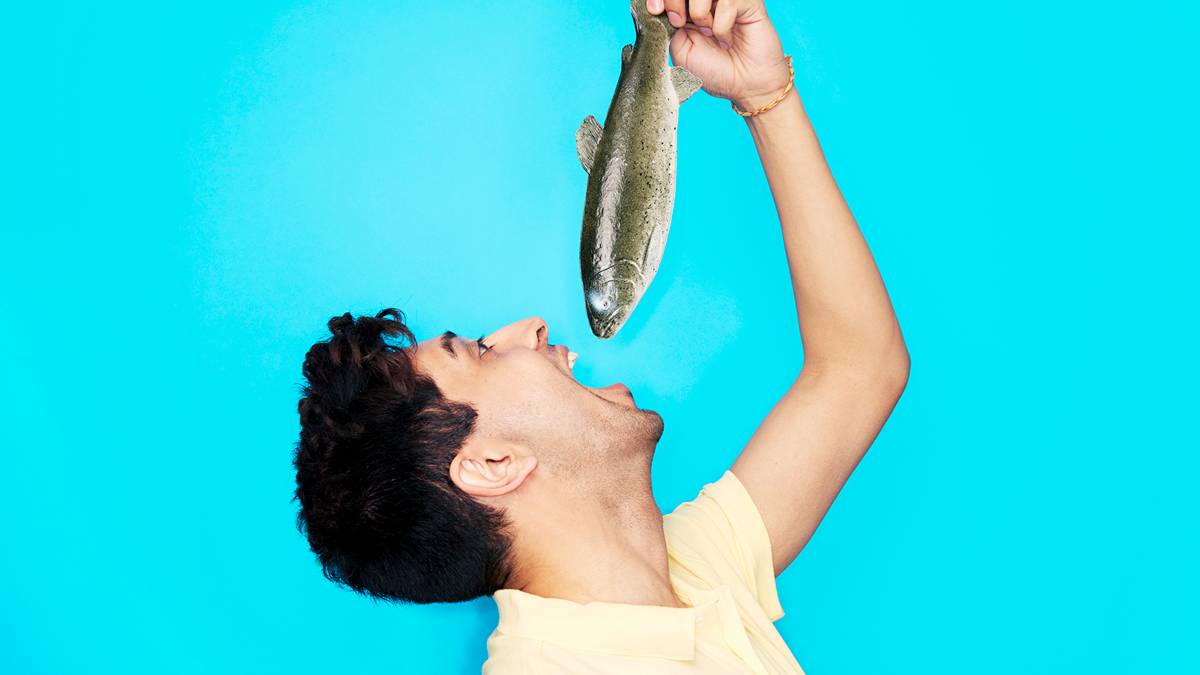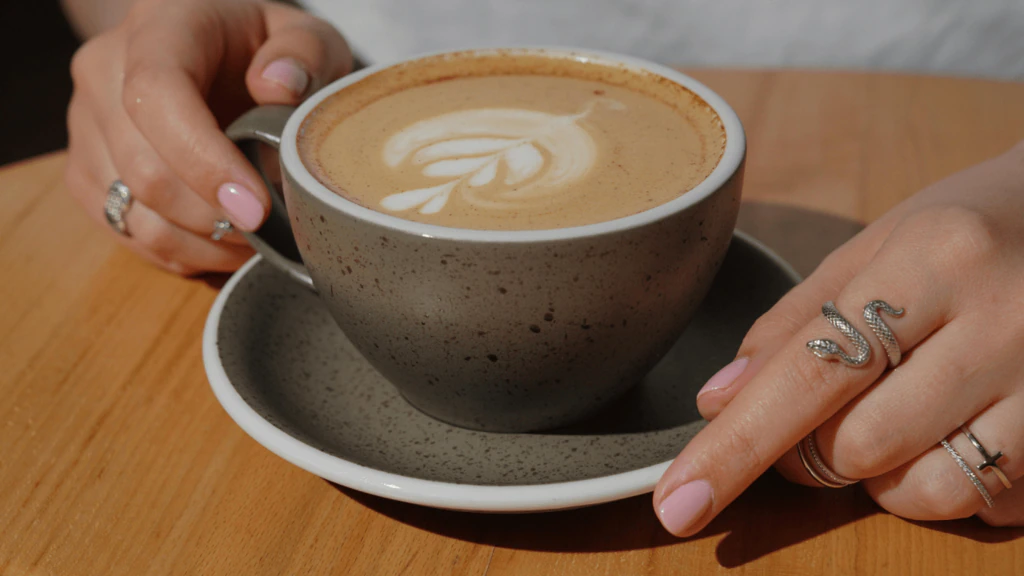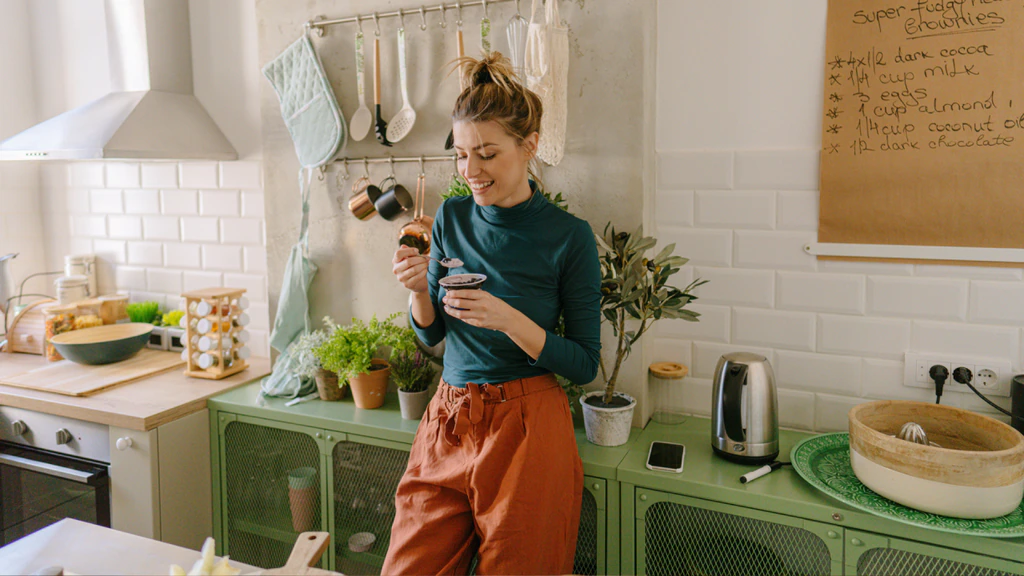Five bad food habits it’s time to ditch, according to a dietitian

'Eating like a seal' might not be one of them, but here are five bad food habits worth taking the time to break. Pic: Getty Images
We all have bad habits. Some of us leave the lids off things, or forget to close cupboard doors. Maybe you leave the toothpaste out, or in the case of food, you find that you cannot go past a Bunnings without grabbing a sausage, or are unable to say no to service station chocolates and treats.
Words by Susie Burrell for Body and Soul.
The issue with bad food habits is that they ultimately create a frequency of behaviours which can undermine the health and nutrition goals we have for ourselves, ultimately resulting in the overconsumption of foods we know are not that good for us.
Here are some of the most common bad food habits, and some strategies to take control.

#1. Coffee instead of breakfast
Is life even worth living without starting with a strong Latte or your favourite almond capp? There is nothing overly wrong with starting your day with a coffee; rather, it can become an issue when you are substituting nutritious foods for nothing but coffee. While milk-based coffee does offer some calories, it does not have the same nutritional profile as a well-balanced meal.
Often, we find ourselves enjoying multiple coffees before lunch, which means that we are sipping on sweet fluid for hours at a time, and are not giving the digestive system a break to actually digest the calories we have consumed, and allow natural hunger to be experienced 3-4 hours after the first meal. This means we tend to eat more throughout the second half of the day, which is conducive to weight gain over time.
Solution:
Keep in mind that a milk-based coffee is only 1/2 a breakfast, and you will need to eat at least a slice of toast with protein or some yoghurt and cereal to keep you satisfied until lunchtime. Aim to have at least 3 hours in between all calories, including liquid calories from milk, and if you love coffee, swap to a black or piccolo so the extra coffee does not negatively impact appetite.

#2. Non-hungry eating at work
A biscuit here, a lolly there, a colleague’s fundraising chocolate there, and before you know it, you have consumed 200-300 extra calories a day without realising it. Offices and workplaces are notorious for non-hungry eating, as we seek a stimulus to break up the day, especially in long meetings, and there are always plenty of people around eating something, which is generally a cue for us to eat as well.
Solution:
Create a food schedule so you have set eating times, and take as many of your own snacks and meals with you so you are less tempted. Put tempting treats out of sight, and try chewing on a cup, or sipping on herbal tea or water, so you are less likely to grab something and put it in your mouth. Keep front of mind the fact that it is work, not a treat and make a conscious decision to enjoy your treats on your time, rather than using work as an excuse to eat extras you do not need, or even want.

#3. Picking late afternoon
Whether you arrive home starving and find yourself raiding the fridge, or end up munching on kids’ lunchbox leftovers, it is not uncommon to see clients consume more calories than an entire meal via a few high-calorie, salty snacks like dips, cheese, crackers and chips at the end of a long day. It is not uncommon to feel especially hungry late afternoon, given it may have been 5-6 hours since your last meal. The issue is that many overeat at this time, leading to a significant number of calories being consumed and weight gain over time.
Solution:
Schedule in a high protein snack at 3-4 pm each day, such as yoghurt and fruit, cheese and crackers or nuts and fruit, hungry or not. Keep a supply of low-calorie snacks such as veggie sticks on hand to munch on when you walk in the door, and keep tempting snacks like dips and chips out of the house.

#4. Snacking after dinner
You may enjoy something sweet with a cup of tea to end your day, or be in the habit of grabbing a salty snack when you settle down to watch your favourite series, but ultimately, snacking after dinner is usually a habit rather than a need to further fuel the body. The issue with eating late at night is that it tends to shorten the overnight 12-14-hour fast the body needs to support optimal digestion and also tends to negatively impact our weight over time, especially if it is a nightly habit.
Solution:
Create an eating cut-off time each day, and keep a supply of lower-calorie snack options such as protein yoghurt, low-calorie hot chocolate, or portion-controlled treats such as individual ice-creams on hand, so if you do choose to indulge, the calories are kept reasonably controlled.

#5. Grazing all weekend
For many of us, every weekend becomes a complete calorie fest, with multiple snacks, meals, takeaways and celebratory meals. There is nothing wrong with enjoying good quality food with friends and family, but if some meals will inevitably be heavier, we also need lighter meals and fewer snacks to buffer the excess.
Solution:
Focus on meals rather than snacks over the weekend; plan ahead and factor in a couple of more indulgent treats while keeping your diet on track the rest of the time. Reset each Sunday with a lighter meal, such as soup, to end the weekend.
This article first appeared in escape.com.au as 5 bad food habits it’s time to ditch, according to a dietitian.
Related Topics

UNLOCK INSIGHTS
Discover the untold stories of emerging ASX stocks.
Daily news and expert analysis, it's free to subscribe.
By proceeding, you confirm you understand that we handle personal information in accordance with our Privacy Policy.








